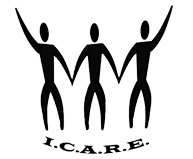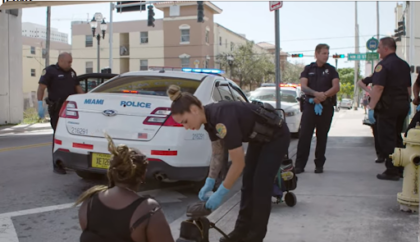ICARE Research Issue Update: Mental Health
Jax Mayor’s Office Learns About Treatment, Not Jail for People in Crisis
Most states spend more money to incarcerate people with mental illnesses than to treat them. ~ Judge Steve Leifman, founder, Miami-Dade County Criminal Mental Health Project
They wash their feet.
That’s the first intervention a person in a mental health crisis will get when they enter Miami-Dade County’s new Criminal Mental Health Center. Besides the spiritual symbolism, the practice soothes a person agitated by a crisis. It tells them – you’ve come to a safe place, a caring place.
Tracey Polson from the Jacksonville Mayor’s Office, toured Miami’s model Mental Health Project with ICARE in December. The hope is to engage the mayor, and through the power of relationships, the Jacksonville Sheriff’s Office and the judiciary as well. Early signs show Sheriff T.K Waters is checking into the program, though so far, he’s rebuffed ICARE as its ambassador.
Miami’s project is a national model for revamping today’s justice system to treat, not incarcerate people suffering from mental illness. Since the program’s inception, arrests have dropped from 156,000 a year to 53,000 a year.
Here’s what ICARE learned during our visit:
- Crisis Intervention Training – Miami’s insurance premiums have dropped, because there are so many fewer police-involved shootings since its CIT program began.
- Post-arrest mental health screening for inmates. One of the state attorney’s prosecutors said – I used to be a lock-em-up conservative. But now I’m a smart-justice conservative. Today, he believes in using courts, the public defender, prosecutors and judges to get people treatment and help.
- Peer specialists team up with participants upon release to help them stay on track with meds, appointments and court appearances. The buddies, who’ve also recovered from mental illnesses, set a positive example. One that says – you can do this too.
- Criminal Mental Health Center. The new facility is a one-stop shop for tough cases – people who cycle through the system, usually because their mental illness is compounded by other problems, like homelessness or diabetes. The center includes a medical clinic and a court where residents can meet with a judge.
Would you like to see Jacksonville treat, not incarcerate people who suffer from a mental health crisis? Come to ICARE’s Nehemiah Assembly April 15 and show our public officials we care. Together, we’ll make great things happen!
Is social justice part of your spiritual journey? Contact icare@bbuuc.org to learn more.


